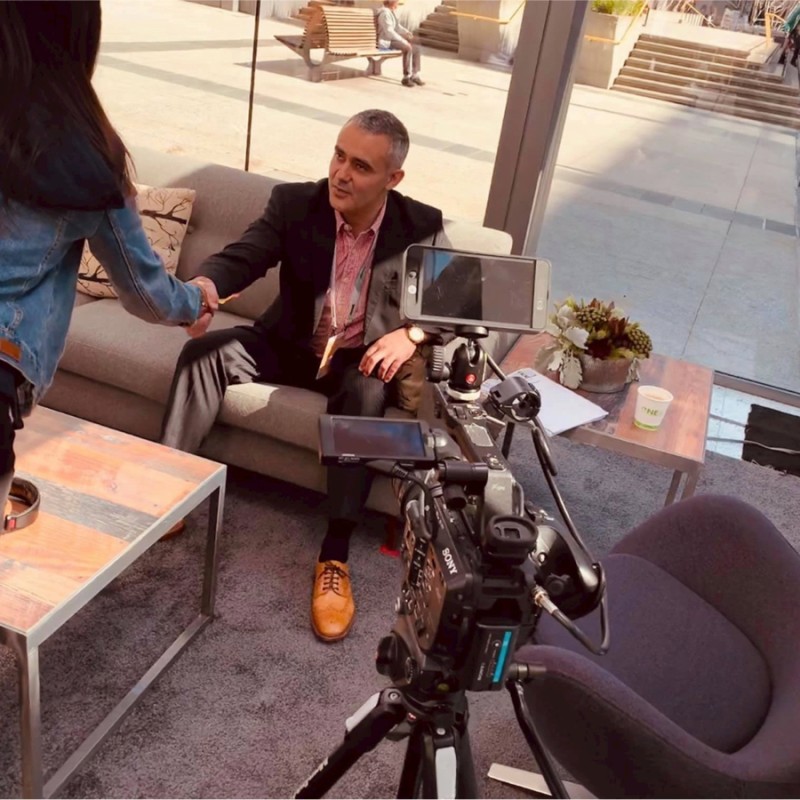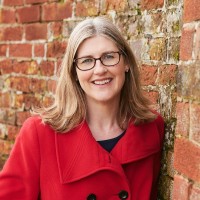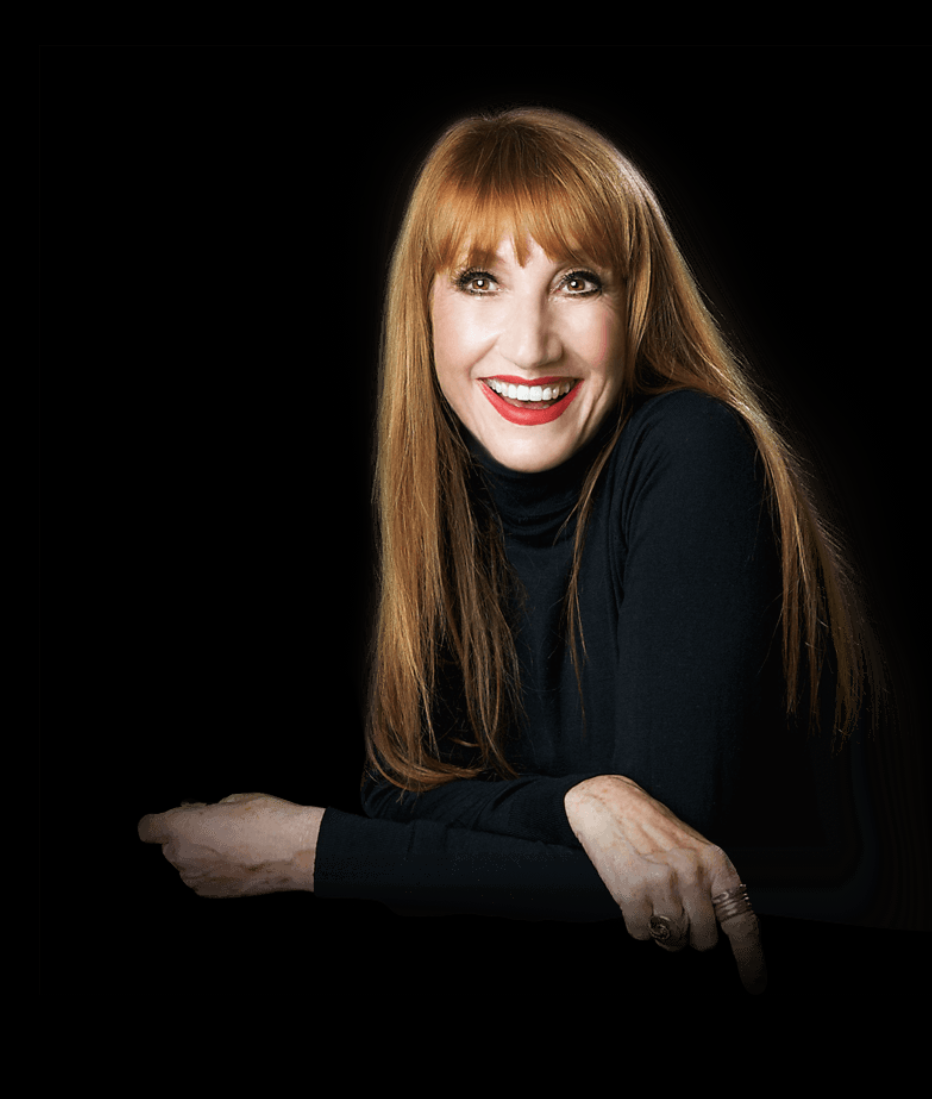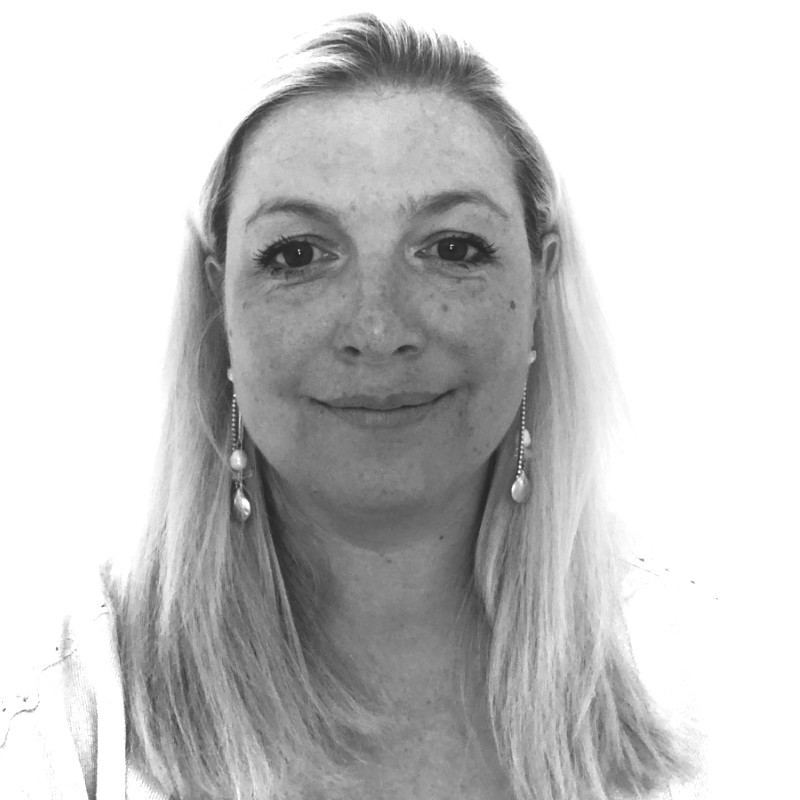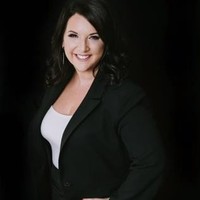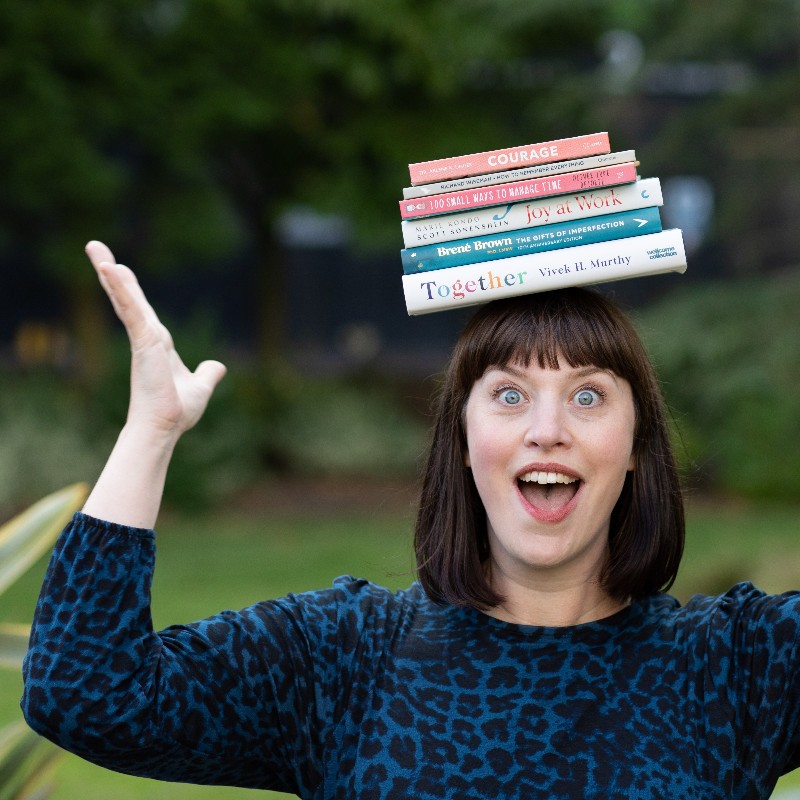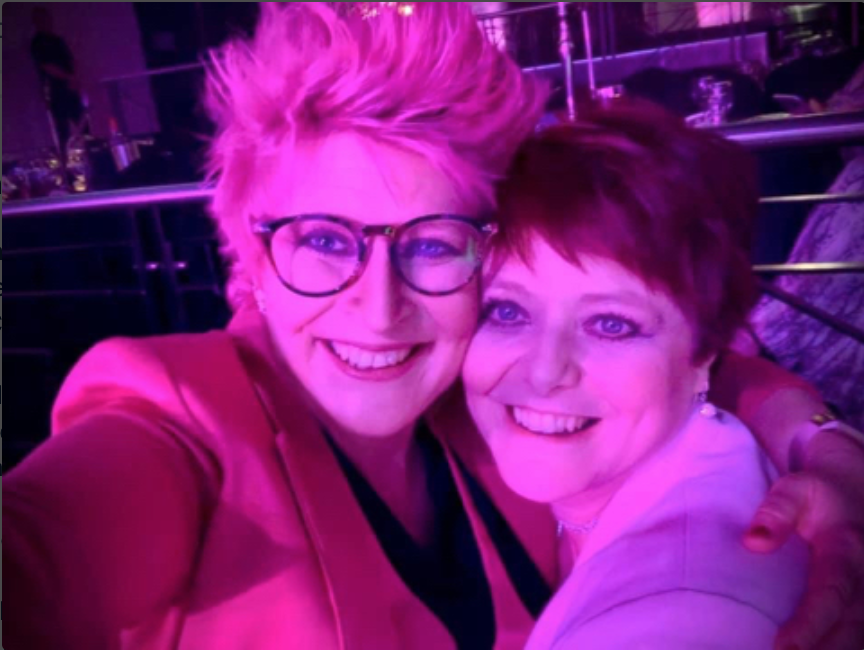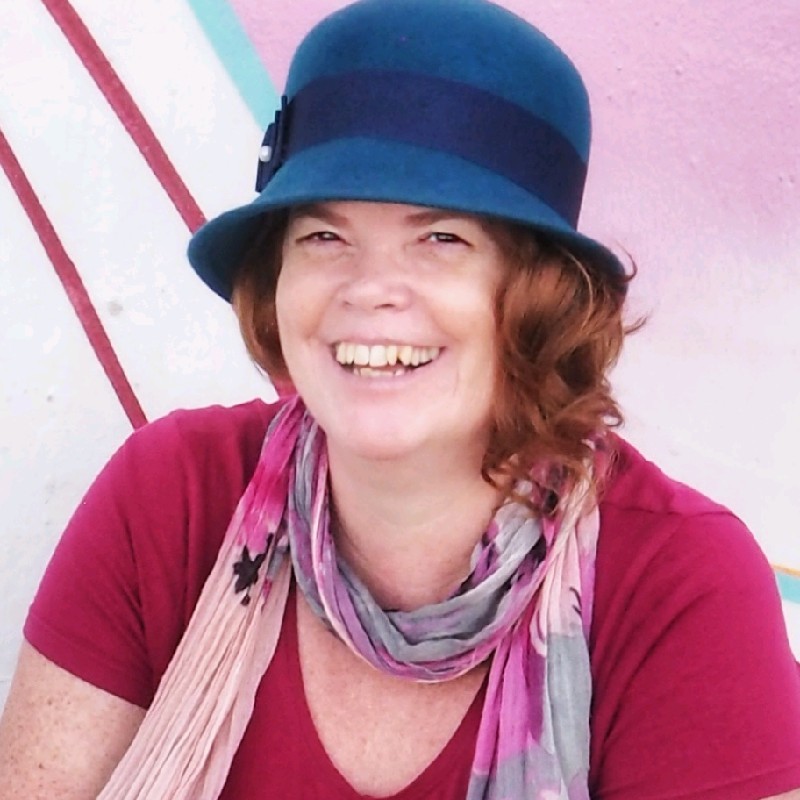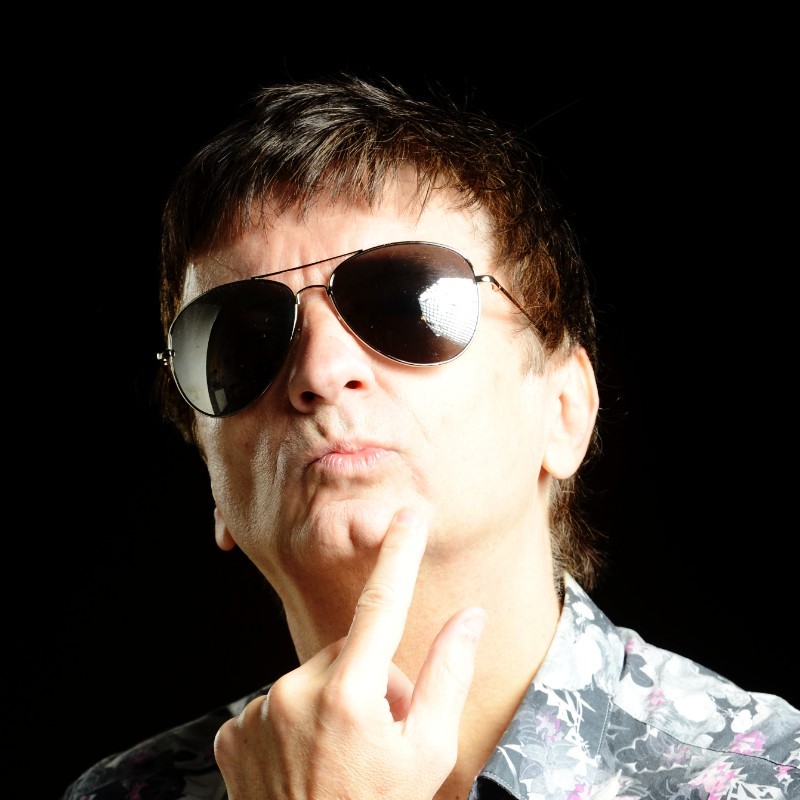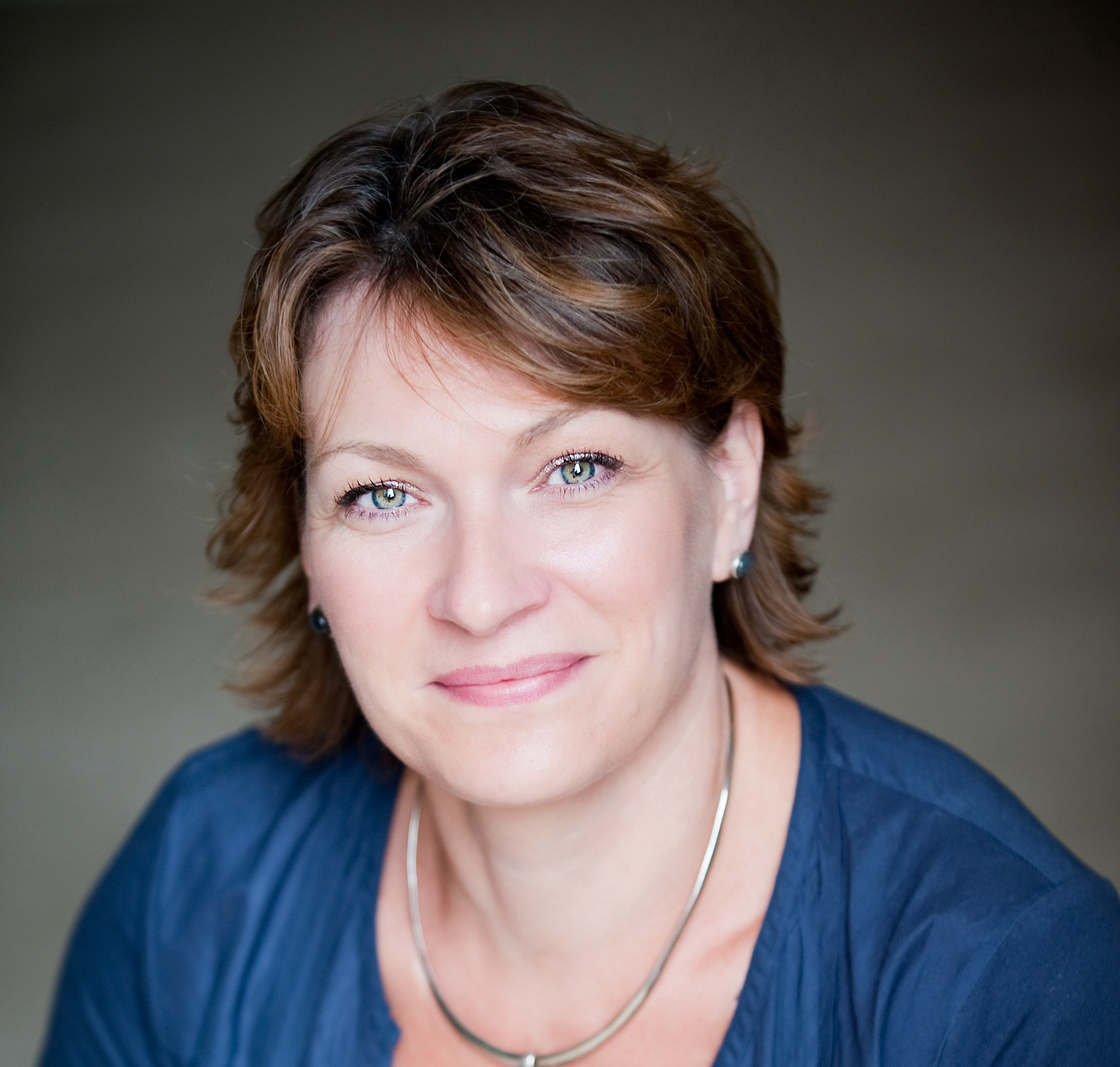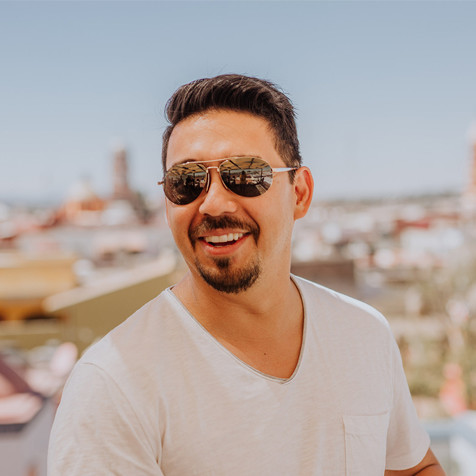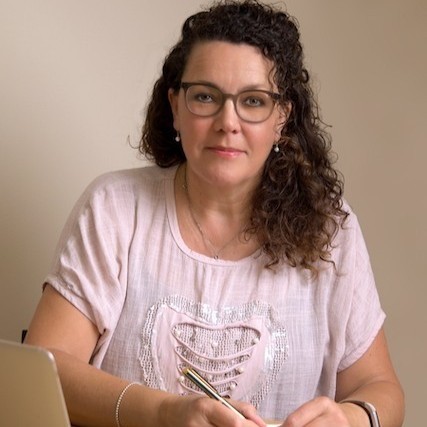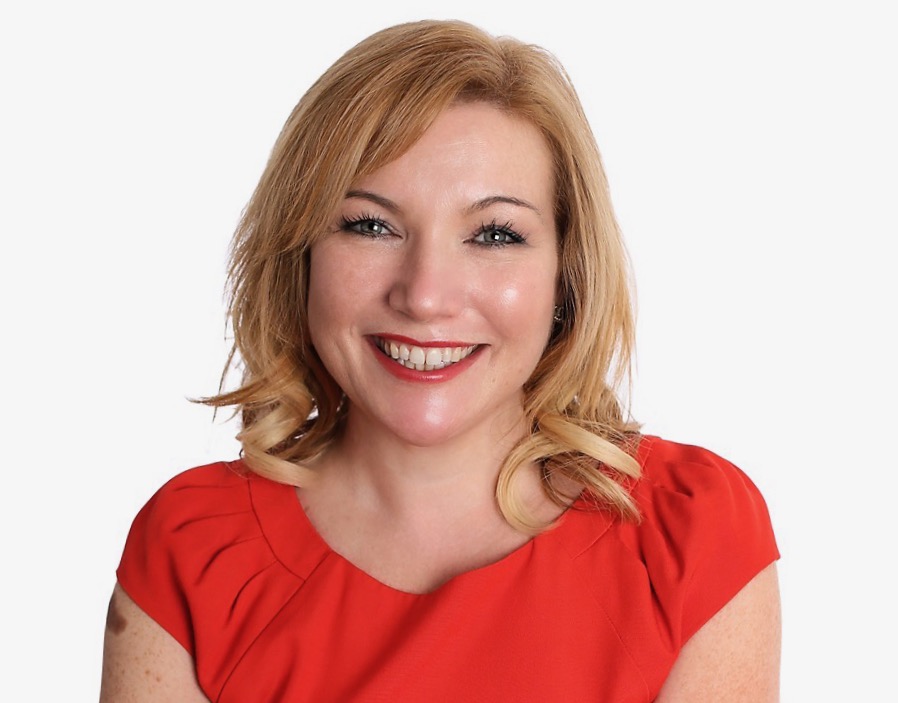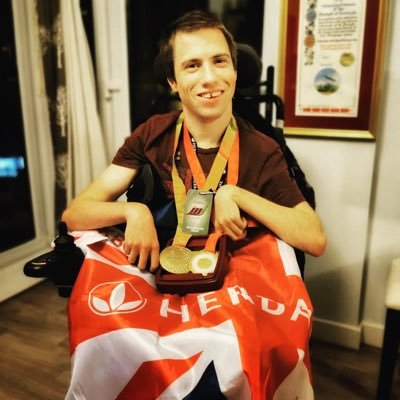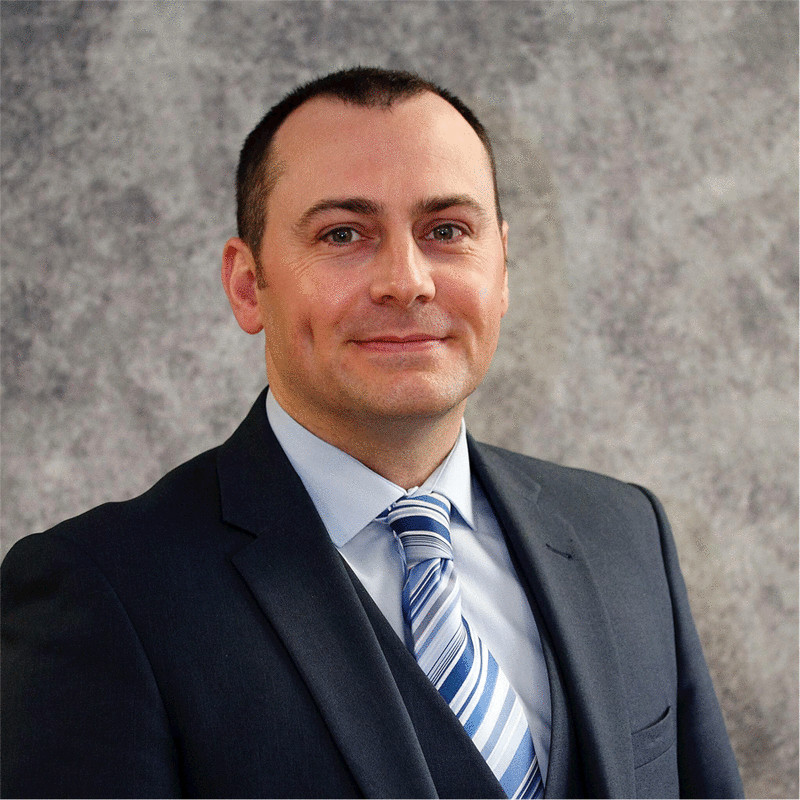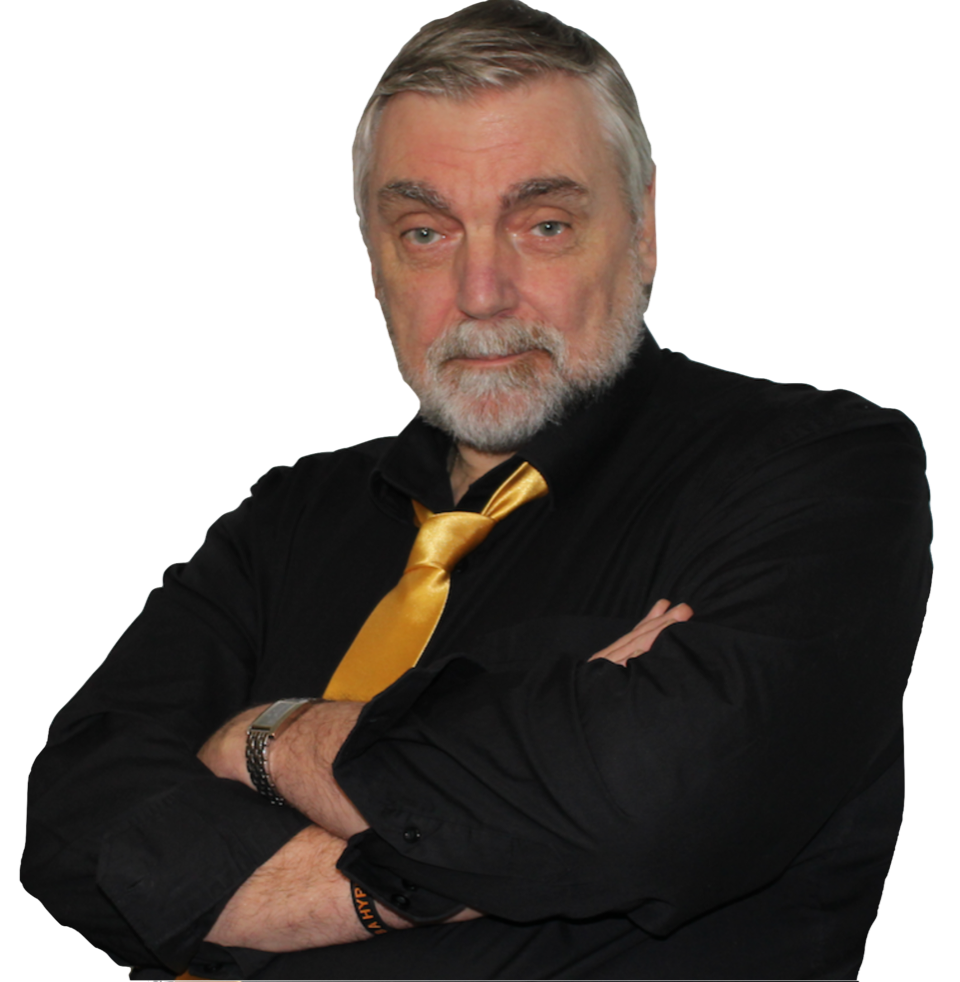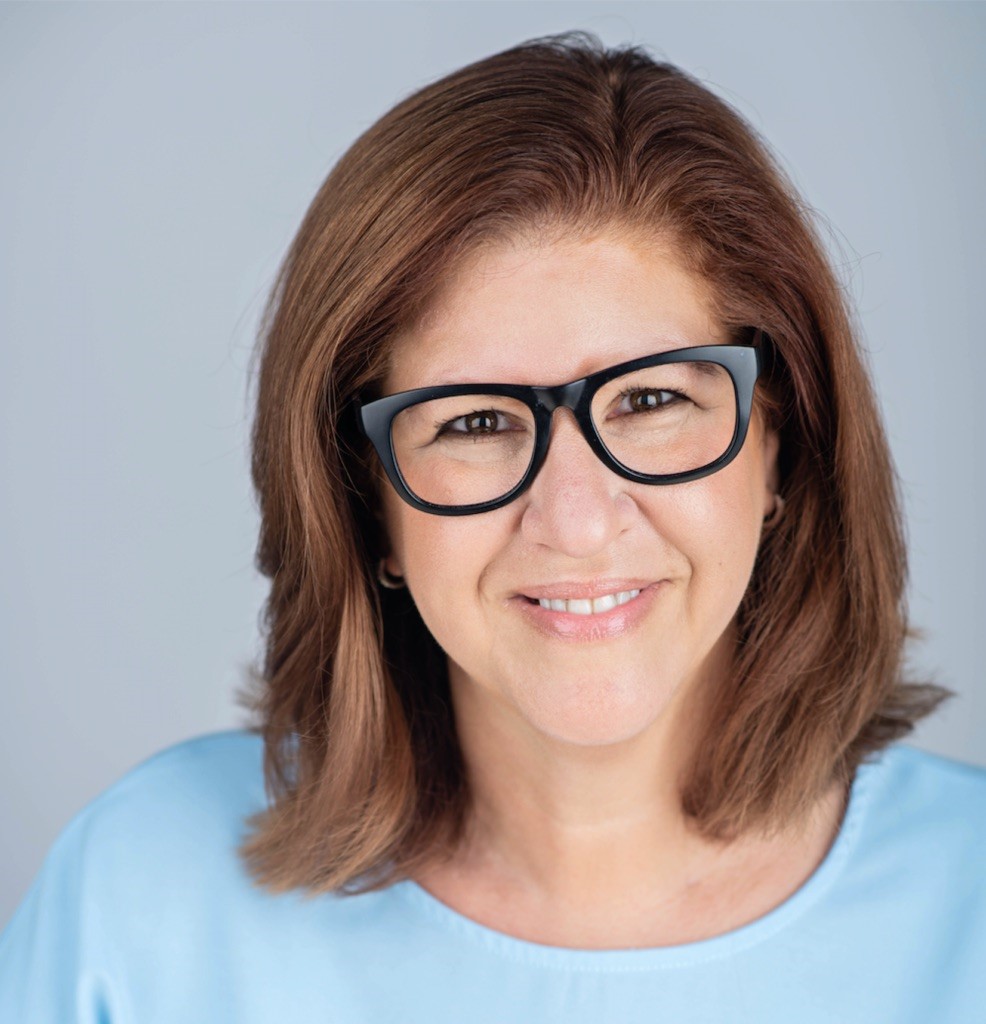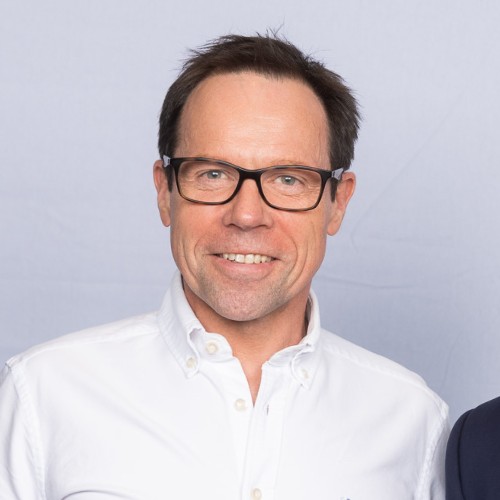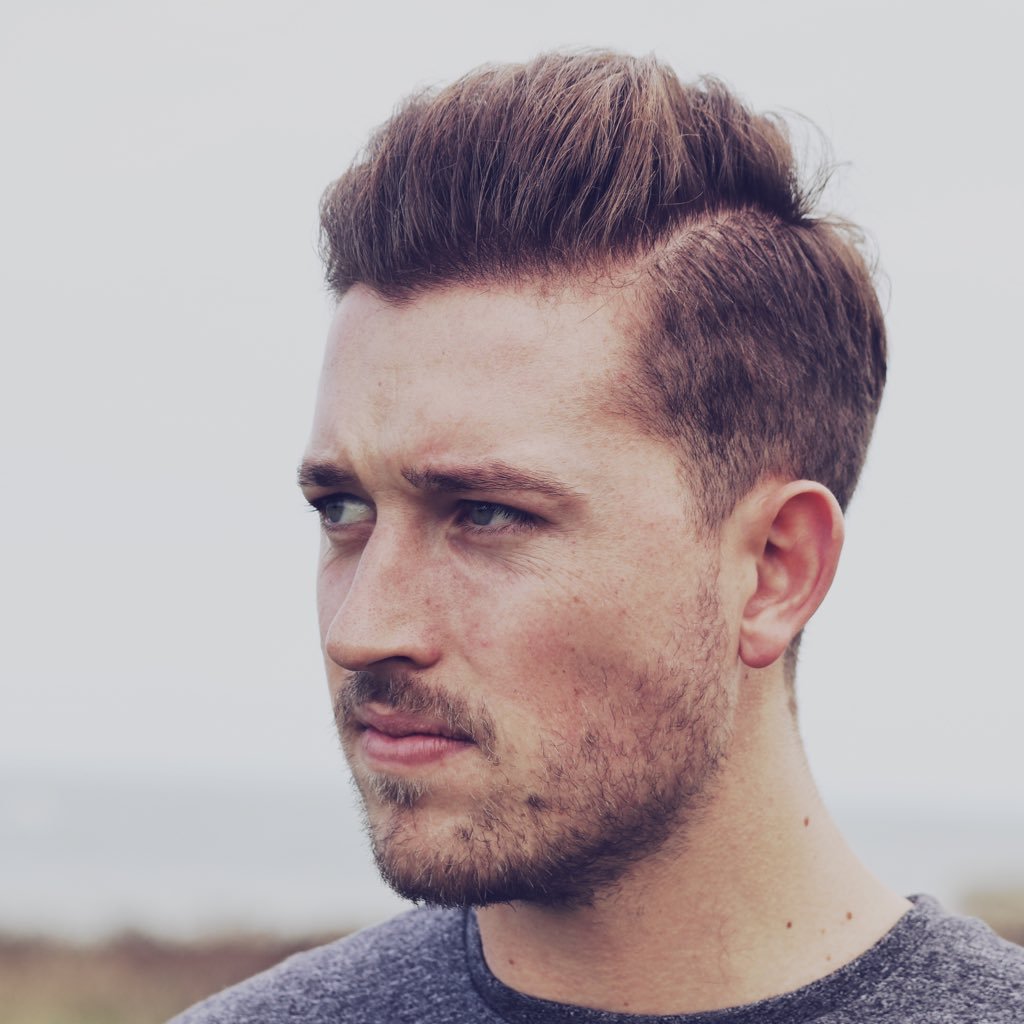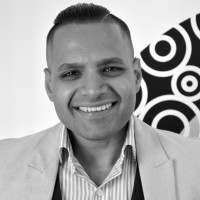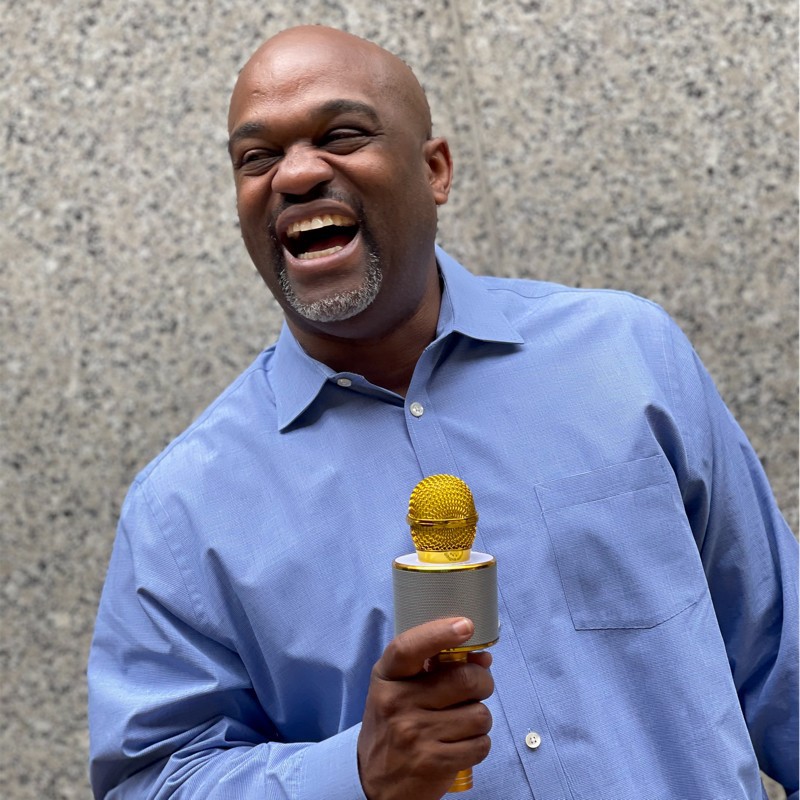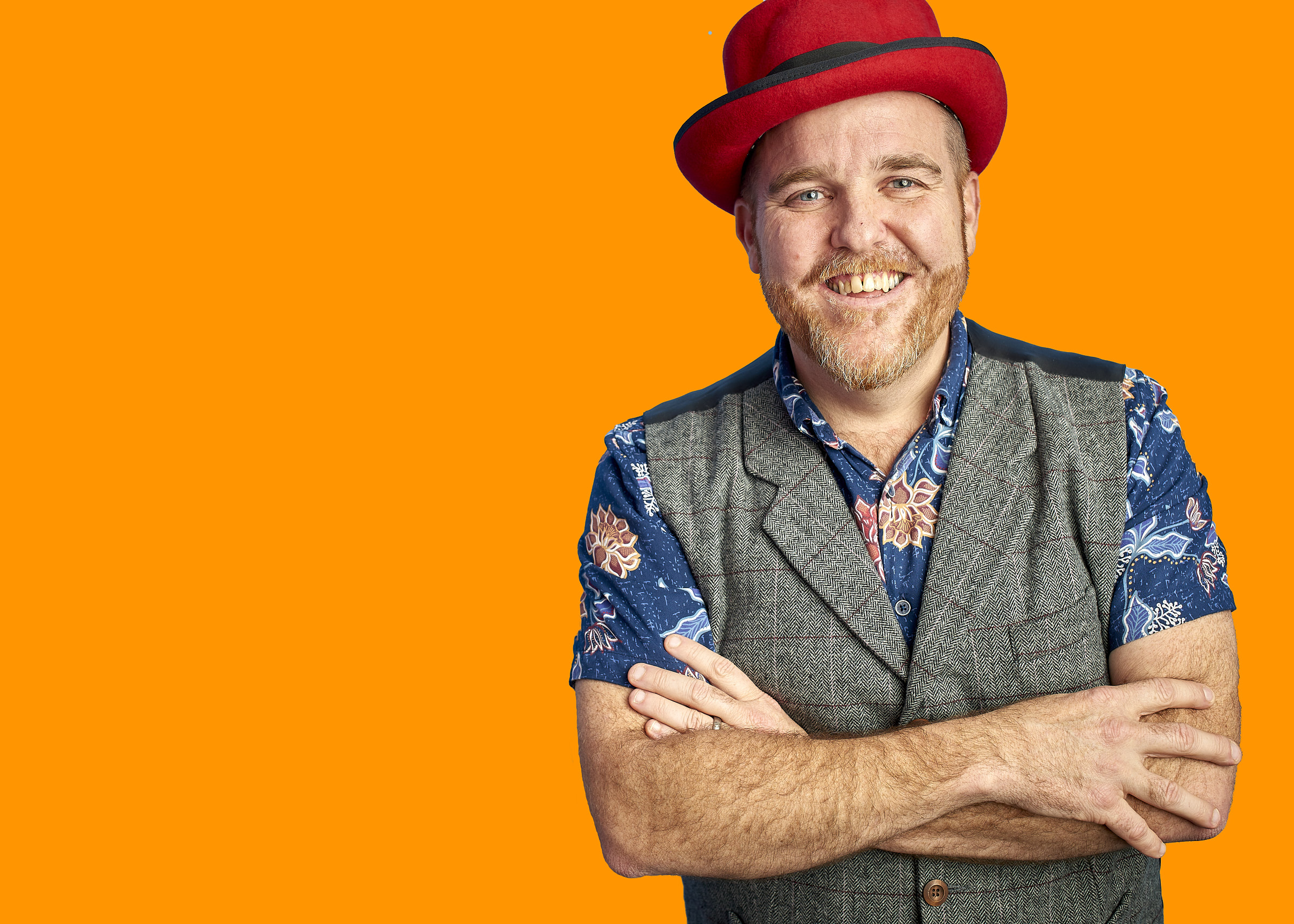Menopause for men AND women in the workplace AND how it affects the home
We're Making Conversations about menopause Count!
Episode 65 - Bev ThorogoodHot flush? We can relate! Sit down for a brew and enjoy our conversation with author Bev Thorogood, expert on menopause

Big take-away quote from this conversation about menopause for men, suffering in the workplace and how we can educate children:
“The younger generations coming through will be more open to hearing and talking about this. They’ll be better educated than we are….”
Bev Thorogood, Making Conversations Count (January 2022)
(Hard of hearing? Transcript here).
Strapped for data? You can hear a lower-bandwidth version of the episode here.)
It’s not just women who suffer through menopause.
This episode of “Making Conversations Count” is creating awareness of menopause for men and the impact they feel from it too.
Men also experience the journey alongside the women in their lives. We get into how men could easily be impacted by it, even if their wife isn’t the one suffering!
However this episode isn’t all about the men and clearly the menopause for men doesn’t mean suffering the actual symptoms.
And boy are there a lot of symptoms!
34 in fact.
And they can often be very different depending on the women.
Listen to the episode to learn what they are.
(Full transcript available here)
Follow and listen on Apple Podcasts now by clicking this
What IS menopause?
Menopause is a natural process that all women go through, but it is often not taken seriously enough. In the workplace, menopause can often be dismissed as a “woman’s problem” and employees may feel reluctant to talk about it openly. This can lead to a lot of confusion and frustration, as menopausal symptoms can often be mistaken for other conditions.
As Bev Thorogood mentions in the episode, we need to raise awareness of menopause in the workplace and ‘start the conversation’.
“It benefits everybody to raise awareness.
And like you say, men might not experience it personally, but they’re certainly impacted by it.”
Menopause in schools
As menopause becomes more prevalent in the lives of men and women, it must becomes included in the school curriculum. Bev mentions how that is something on the agenda of the education system.
This will ensure that students are aware of the symptoms and how to deal with them. It will also help to break the stigma around menopause.
Bev thinks that means women of the future should have a bit more understanding when they’re going through menopause.
“They’ll be better educated than we are, but we need to do something now to help women, who are maybe in their early 40s, late 30s, early 40s now, to not go through the same feelings of ignorance, I guess, that I went through.”
Talking of the symptoms of menopause
The symptoms of menopause are covered extensively in this episode but many of will probably be aware of the most commonly known ones.
Symptoms of menopause can be similar to other health problems and men do not always understand them.
Perimenopause, the early stages of menopause, can cause hot flashes in women who are suffering.
It often comes as quite a shock to men as it is something that they don’t fully understand.
Some seem to think men also suffer menopause.
This is not true.
Although men also suffer a drop in testosterone (a drop in hormone levels does cause menopause in women) the decline in men is much slower.
Therefore, it is not the same, and has way less impact on the male body than it does in women.
In men, their hormone changes can cause irritability and fat redistribution, causing things like ‘moobs’ (man boobs) and bigger bellies.
Even so, this is still not a full menopause.
Men who are going through this ‘menopausal’ experience may not seek treatment for it or even know that their symptoms could be due to menopause because it’s something associated with women and not men.
Bev believes education will help aid understanding and will provide support where needed for both genders.
Continues below…
Watch the episode promo!
Managed to catch the previous episode yet? Click play on the player below to listen!
A practical guide to menopause
As a result of her experience, Bev did a lot more research on what she was going through, in particular using information from the British Menopause Society.
She’s used that extensive data to create a practical book on menopause that she hopes will be of help to both women and men.
In this episode you’ll hear more about the easy to read guide covering many questions around menopause.
It’s also covering a working women’s focus, as a large number of women who are transitioning through menopause are still drawing a regular wage.
(Full transcript here)

Wendy’s take-away after having this conversation about menopause for men and its impact for women in the workplace…
A taboo subject that not many understand until it’s happening to them and then it could be too late. Should we be talking about making menopause mainstream?
After a bad experience herself, Bev Thorogood, began her research and quickly realised that there’s lots of information out there but not the right kind. She has since set about teaching corporate clients and their teams how to manage menopause and support them. We have to admire her tenacity and perhaps the dream will be realised, where the young people will start to spearhead change on this.. – Wendy Harris, host of Making Conversations Count
Want to carry on the conversation with Bev?
“Making Conversations Count” is a podcast from WAG Associates founder and telemarketing trainer Wendy Harris.
Missed our previous episodes?
You can catch up with any of the other guests we’ve been making conversations count with, here.
If you’re on your mobile device, you can hear them in your favourite platform (Apple or Spotify etc) here.
Once you’ve listened, remember to leave us a review!
NEVER MISS AN EPISODE AGAIN!!
Follow the show on Apple Podcasts here!
Follow the show on Spotify, here!
You are following the show on socials, right?
Only there will you see sneaky peaky teasers of the upcoming episodes, as well as updates and news on the show!
Here are the links just in case you need them:
Listen to other episodes on your favourite platform…
Fancy repeating the experience of making conversations count? Here's another chance to hear a popular previous conversation.
Full Episode Transcript - Conversation about menopause for men and its impact on women in the workplace on "Making Conversations Count"
|
Title: |
Making Conversations about Menopause Count |
|
Episode: |
65 |
|
Guest: |
Bev Thorogood, Floresco Training |
Timestamps
00:00:00: Introduction
00:04:09: Bev’s background and experiencing menopause
00:09:06: Some more menopausal symptoms
00:11:44: Raising awareness
00:14:20: Lack of education on the menopause
00:16:47: Equality and the pink and blue jobs
00:19:38: Researching evidence-based facts
00:22:08: “The Business of Menopause”, by Bev Thorogood
00:24:47: Bev’s pivotal conversation
00:33:01: Final thoughts
Interview Transcription
Wendy Harris: Welcome back to Making Conversations Count with me, Wendy Harris, your telemarketing trainer. In this week’s conversation, I’m joined by Bev Thorogood. She’s recently launched a book on how to handle the menopause, and it’s not just aimed at the ladies over a certain age. She’s realised that going through this experience herself deeply affected her work life. And, further reaching to that were the men involved at work and at home. So, whilst there is a 49.5% female population on the planet, I checked, I googled it, this episode is really for everyone, because someone somewhere will bump into or be in contact with a lady who is in some stage of menopause.
Bev is going to share with us today some of those symptoms and how to overcome some of those challenges, so it’s not nearly as bad as it needs to be. So today, let’s get on with Making Conversations about Menopause Count.
Well, what’s new, Wendy Woo? Well, last week, I mentioned heading off for a couple of days of in-person training. I had an absolute blast with a great team who were willing to take on some fresh ideas. We’re all working in a changed environment, where more people are working from home. So, the way to approach reaching them has also changed. So together, we planned a simple process to involve a couple of new tactics, and I heard back from them to say that they have already been making appointments on the first day of hitting the phones.
Now, they never used to receive any incoming calls or replies to emails, so we smartened up the scripts and now they’re getting responses too. I am so excited and I know that they are as well. And a Wendy Woo shoutout to John Bellingham, who got in touch with the show after listening to the Sope episode, or should we call you John Wellington, or was it John Bethalu. Now, Bellingham seems like a fairly straightforward name, and I asked John, “Was it a difficulty with handwriting?” and he said, “No, it had simply been misheard”.
So, here’s my question to you, listener: are we really listening? Do you ask someone to repeat it, or guess, hoping that you’re going to get away with it? I’d like to hear more from you on this topic. Please message the show, using the link makingconversationscount.studio/podcast. Now, that was clear, don’t need to repeat it, do I? That’s all the news from me this time. Let’s get back to making those conversations count with Bev.
Joining me in the studio today is a lady who is making menopause mainstream. I’m a lady of a certain age, and there’s certainly an awful lot about this topic that isn’t spoken about; so today, I am absolutely delighted to have bestselling author, Bev Thorogood, come in and join me for Making Conversations about Menopause Count. Hello, Bev.
Bev Thorogood: Hello, Wendy, thank you very much. That’s a great plug for the authorship. Let’s hope it’s a prediction that comes true!
Wendy Harris: I’m all for predictions and whilst my crystal ball sometimes doesn’t work for me, quite often it does work for other people. So, I’ll keep polishing my crystal ball for you.
Bev Thorogood: Thank you very much.
Wendy Harris: I’ve got to ask, what’s your background, Bev; what led you on this menopausal journey?
Bev Thorogood: That’s a great question. It was never in the career trajectory to be a menopause trainer or a coach, that was never in there. I actually spent a long time working for the Ministry of Defence, so 32 years working for the MOD, 30 of which were for the Royal Air Force. I wasn’t in uniform, I was a civilian working alongside the Air Force, just lots of different jobs, as public sector people often do. So, I worked in finance and admin and all sorts of areas, and the last ten years or so was in learning and development.
I’m 55 now and when I turned 50, can you believe on my 50th birthday, I got my first hot flush? Thanks for that! I thought, “Oh, here we go, this is obviously the start of it”. Literally for two years following that hot flush, I just went through, I don’t think it would be too embellished to say it was two years of pretty horrible hell. I thought hot flushes — I don’t know about you, Wendy, I was pretty clueless about menopause. We don’t get a lot of education. I lost my mum when I was 22, didn’t have her to ask, so I just thought it was hot flushes and you got a bit ratty with people.
What I didn’t realise were all of the other quite insidious symptoms that creep in alongside it, the psychological stuff, the mental health connection. So, I literally had two years of anxiety, almost waking up in the middle of the night feeling a sense of dread, with nothing in my life that was really going wrong that I needed to feel anxious about. I just felt I wasn’t managing stress as well as I did, so obviously being in a management role, there were times when life was a little bit stressful in work. We had some domestic stuff going on with family members, that was challenging.
Whereas, in my younger years, I just took that all in my stride, I just found that for that two-year period, I just wasn’t coping, and I was getting things like migraines. At one point, my migraine was so bad, I ended up in the Stroke Clinic at Peterborough Hospital. Turned out it was just a migraine, but we weren’t sure, because I completely lost short-term memory, word recall, and that kind of thing; so, that was a bit frightening. I didn’t really know what was happening. You mentioned perimenopause earlier, I don’t think I was even familiar with that term, until I started to do a bit of research into this.
So, very long story short, two years of pretty uncomfortable symptoms, not really knowing what was going on. At times, I thought I was getting early-onset dementia. I actually worked with a lot of women my age. There were six women, all of a similar age, and whilst we joked about menopause and we joked about the hot flushes, nobody was talking about the other bits, the bits that you don’t want to share, because they make you look like you’re losing the plot a little bit. So, we weren’t talking about feeling anxious, we weren’t talking about feeling stressed, and I was managing those women. So, I guess I didn’t want to be seen as failing, and the pressure just was mounting.
It was January 2018, I actually asked the MOD for a 12-month period of unpaid leave, which was something the MOD quite regularly granted, but they had financial constraints and they rejected it. So, the idea of the 12 months was to get me back on track, help me to figure out what was going on, sort out some of the domestic stuff and feel a bit more back to my normal self, so then they rejected it.
Wendy Harris: Did you think there was another root cause for what was going on?
Bev Thorogood: I had no idea. I couldn’t even pinpoint what the problem was. It just felt like I wasn’t myself. My brain wasn’t functioning the way it should, I was more reactive to things. I can’t even begin to tell you how many times I ended up in my boss’s office in tears, telling him what a mistake he’d made in hiring me.
I’d literally moved jobs about a month before my 50th birthday, still within the Air Force, still within the same RAF station, but into a different role, and he’d requested me to go and work for him and I just felt like I was failing, I was letting him down. He was only 27 as well, bless him. He was a brilliant boss, really supportive, but totally out of his depth as well. The best he could manage was, “I think I know what you’re going through, because my mum’s going through it”, which wasn’t particularly helpful! But he was very understanding, but hadn’t had any training. He just wasn’t aware and I wasn’t aware. So, other than the hot flushes and crying, I had no idea that all of the other bits were menopause.
Wendy Harris: You talk about other bits, and I am like a radiator in bed at night, which has never been the case, I’ve always needed an extra blanket. What are the other bits; brace me?
Bev Thorogood: Okay, are you ready for this?
Wendy Harris: I don’t know!
Bev Thorogood: There are 34 documented symptoms of menopause. The problem is, depending on which expert you talk to, you might get a different 34.
Wendy Harris: I guess you get a variation, depending on who you are and what your make up is, right?
Bev Thorogood: Yeah, absolutely. So, we all have different ways that we manage things like stress and anxiety and that kind of thing. So, if we break them down into three areas, you’ve got the physical symptoms, cognitive symptoms and emotional symptoms.
So, your physical symptoms, we’re quite familiar with many of them; things like hot flushes, night sweats. Headaches and migraines are very common, because they’re related to our cycle. But things that you might not realise are things that include restless legs or achy joints or muscle soreness or recurring urinary tract infections. If we can get the elephant in the room out the way, things like vaginal discomfort and vaginal dryness affect a huge amount of women and they don’t talk about it.
Sex drive and libido can go through the floor. Other things like itchy and dry skin, dry eyes, bleeding gums, metallic taste in your mouth, heart palpitations. You know, wow, all of these symptoms, and it’s all to do with the fact that our estrogen levels fluctuate so much, and we’ve got estrogen receptors through our whole body. So, as our estrogen levels drop, depending on where the body feels that decline, we’re likely to feel the symptoms.
Then, as well as all the physical ones, you’ve got cognitive ones, which are like brain fog. I’m sure you’ve heard people talk about brain fog, where things like short-term memory problems, word recall issues, concentration problems, feelings of just cloudy thinking, that you’re not quite as sharp, not quite as on the ball as you maybe used to be. And this is where a lot of women feel like they’re getting that early-onset dementia.
Then you’ve got the psychological, emotional ones, things like anxiety, as I’ve spoken about, depression, low mood, tearfulness, rage. Thankfully, I never got rage, I never wanted to kill anybody, but I have heard a lot of women say, “I just get so angry and frustrated, and it’s just not like me”. So, there’s a huge spectrum of symptoms. And because they’re so broad, it’s hard to pinpoint, “Well, is this perimenopause, or is this something completely different?”
Wendy Harris: So, how do you have those conversations today to help people then, Bev?
Bev Thorogood: I’m massively a believer that we need to raise awareness and stop brushing this under the carpet like it’s some sort of stigma, because I think as women, we don’t know what’s going on, but there’s a whole narrative around women and older women in society and their role in society. So I think, in terms of having the conversation, my main focus in terms of my job now is that I go into businesses, I work with businesses, to raise awareness of what menopause is, basically, and when and why it happens; because again, we talk about women of a certain age, but actually menopause can affect women at any age, from teenage years onwards. It’s not just a midlife thing.
So, raising awareness by having conversations with organisations, getting in and delivering training sessions, or awareness sessions, to all staff, male and female, young and old, senior and junior, to kind of break the ice, I guess, and start the conversation, because if we don’t start the conversation, it stays a taboo, it remains something that women feel there’s a stigma around; and there shouldn’t be, it’s a natural life event.
Wendy Harris: It’s happening to women of all ages, and it’s a journey that will be part of our life, so the earlier you start that conversation, the better, but of course women impact on men. So, they’re going to need to know how best to deal with the mood swings, or to be able to help with those physical challenges that will bring our emotional levels down as well.
Bev Thorogood: Absolutely. It benefits everybody to raise awareness. And like you say, men might not experience it personally, but they’re certainly impacted by it. Even if they’re not married, they will have connections with women who are, at some point, going through this, whether it’s a sister, a partner, a wife, a mum, a daughter even. There’s certainly a generational thing.
I think people coming up through the generations now are much more open about conversations around lots of things, mental health issues, menopause, periods; they talk much more openly, certainly than people of my generation did. So, I think the conversation will change as time goes on, but there is a bulk of people in sort of this early Generation Xs and the baby boomers out there who still don’t want to talk about it. They still see it as something that’s in some way seen as a weakness almost.
Wendy Harris: Do you think it’s that they’re not there yet; they don’t need to know yet? It’s like the other end of life, isn’t it, where as we sort of mentioned before we started recording, teenagers have got the Miriam Stoppard of — there’s that staple evidence and reading and research that’s gone into being a teenager and growing up into a young adult. We’re almost missing that staple for ladies of a certain age that are going to go through this next cycle. It’s like the maid, the mother and the crone.
Bev Thorogood: I think you’re right. I mean, there’s a distinct lack of education around menopause for women and men. I mean, as of September last year, menopause is actually on the school curriculum. Whether it’s being applied yet or not, I don’t know. But they are going to be talking about menopause, because we get taught the journey at the start, we don’t get told about what’s going to happen at the end of this reproductive journey.
So, my thoughts are that actually, the younger generations coming through will be more open to hearing and talking about this, they’ll be better educated than we are, but we need to do something now to help women, who are maybe in their early 40s, late 30s, early 40s now, to not go through the same feelings of ignorance, I guess, that I went through.
Wendy Harris: I’m wondering, because I hope my sister doesn’t mind me bringing her up in this, but she was an older mum. She’s younger than me, and there’s quite a big age gap between us, but she’s got young children and she’s going to have two young boys. When she’s 40, they’ll still be in primary school. Do you think there’s that shift that we’re having our children later, so we don’t need to know about what’s coming next as soon, because we’re not done with this chapter yet?
Bev Thorogood: Potentially. I do think there’s a danger that there are more and more women leaving it later to have their children. The problem with that is, it doesn’t put back the menopause, it’s still going to happen. So, I think one of the biggest changes for women over the last 40 or 50 years is that our role in society has changed. So, not only are women often having their children later, but they’re also often in careers that they want to maintain.
With the best will in the world, I think COVID has proven that the bulk of that caring responsibility, that family-making, homemaking, still sits predominantly with women. I know that’s a generalisation and there’s going to be exceptions in there, but for the majority of women, they do all of the caring, they do all of the family-making, they do all of it.
Wendy Harris: The pink jobs. We’ve had this on a conversation before; the pink and blue jobs, where there really shouldn’t be a differential, unless you want there to be a differential. It’s about choice now, isn’t it?
Bev Thorogood: Well, I’m not sure there is choice, and I hear this a lot in terms of the whole kind of men say, “Well, you wanted this?” Well, yes, we wanted equality in the workplace, we didn’t want equality plus everything. Equality is about sharing everything, not just the workplace. So, yes, we’ve got our place, we’ve got our foot in the door in the workplace, but —
Wendy Harris: When I’m a successful female CEO, which I am because it’s just me in my company, so I’m going to claim that I’m a successful CEO, just for this conversation, you’ve got to basically acknowledge that I am doing all of this, as well as managing the fact that I’m potentially perimenopausal. That’s a whole job in itself!
Bev Thorogood: It can be. And I think, certainly what I’ve discovered through the research that I’ve done over the last four or five years is that stress, unmanaged stress, it’s a major problem for women in terms of their perimenopausal symptoms, it exacerbates the symptoms.
Wendy Harris: And health in general, I would say.
Bev Thorogood: Health in general, absolutely. So you’re talking about cell inflammation and all of that kind of thing, with chronic levels of cortisol. So, what we find is that yes, you’ve got women who are having babies later, we’re not designed to have babies later; we’re choosing to, and that’s absolutely fine, I have no problem with that. But our bodies aren’t actually designed — our hormone levels actually start to decline from the age of about 35, so we have got changes going on. And if we’re having children later, we’re staying in work, maternity arrangements have meant that we’re able now to maintain a family and a job and a career, but it’s all extra in that stress bucket.
Then, of course, perimenopause comes along and the bucket just overflows, and I think that’s where we see a difference now to maybe what we would have been seeing 40 years ago. I don’t doubt that women still had problems hormonally, but they didn’t have potentially the same levels of stress and pressure on them that they do now, and it’s just a bit of a tinderbox waiting to explode, if we don’t manage that.
Wendy Harris: You mentioned then the research that you’ve done over the last few years. Was that, in part, to put the book together?
Bev Thorogood: It wasn’t intended to put the book together, there was never really a book in mind. It came initially from me wanting to understand what the hell was going on in my body and why I felt like I’d had a complete sort of personality change. I felt like I’d gone through this whole —
Wendy Harris: Bev version 2!
Bev Thorogood: Yeah, and I didn’t like it. So, my background, although I’d always worked for the MOD, I’d trained as a fitness instructor in my 20s and I was always interested in health and wellbeing and exercise and nutrition. So, I’d actually started looking at the nutritional side and the lifestyle factors that might impact on menopause.
So, I guess the book is the culmination of everything that I’ve learned over the last five years, because what I found, if I’m honest, people say, “There’s not enough information about menopause out there”, and I fundamentally disagree. There is oodles of information. It’s confusing, it’s contradictory, some of it’s downright misleading, some of it’s straightforward wrong. I really struggled to find accurate, evidence-based information.
I guess I’m a bit of a science geek. I like to know that what I’m reading has some evidential backing to it, that there’s some science behind it.
Wendy Harris: We want proof, don’t we; we want real proof? We want concise information and we want practical information that we can imagine ourselves putting into practice.
Bev Thorogood: Yeah. Everything that I read seemed to be either promoting some sort of potion or pill, this magic pill that would solve all your menopause problems; or, that the information was written by somebody who was sharing their own experience and how they managed it, and it was a bit like, “Well, it worked for me, so it must work for you”. We’re all different and we don’t have that one size fits all. I couldn’t find anything that was really pragmatic and practical.
Then I came across the British Menopause Society, and they are the leading authority in the UK around menopause, and I started to feel like I was getting some evidence of what was going on, something that had been properly researched and had some sort of efficacy to it —
Wendy Harris: Had some weight to it.
Bev Thorogood: — and weight behind it. So, I started to do more research into the stuff that the British Medical Society was putting out, and everything started to make more sense when I looked at it from a more clinical point of view.
So, the book really is my attempt to provide a guide, and it’s only a little book, it’s only 104 pages long, but it’s a practical guide. So it talks about what menopause is, when and why it happens. It’s not a heavy medical journal, because that’s not what I wanted either. That was something that I felt was either very clinical, or it had no clinical evidence at all. So, it’s kind of a middle ground. I don’t even know if this is a proper phrase, but I’m going to coin it: it’s “pick-up and put-downable”!
Wendy Harris: It’s what I would call an “edutorial”, so that it makes you think for yourself, “Does that fit for me? Does that fit for me? Then, that’s something that I’m going to follow and explore more”. That’s what a guide is, is to lead you to the right path, isn’t it?
Bev Thorogood: Yeah. What I’ve tried to do is bring together lots of different options, because there isn’t one size fits all. So, it talks about the medical route, it talks about HRT, it talks about the risks and the benefits, and often the benefits aren’t spoken about. It talks about the different types, so people can make a judgement about what they want, they can make an informed decision about how they want to manage their symptoms. So, we talk about the medical route, the non-medical supplement and herbal route.
Wendy Harris: It’s important, with access to doctors the way it is, and I think that’s here to change, isn’t it, that we were only having this conversation the other day that you can ring the doctor — and I think I saw Bob Mortimer and Paul Whitehouse Gone Fishing. It’s easy, it’s funny, but it’s observational. But the point is that you ring the doctor and you tell them what’s wrong with you now; you’ve become the doctor for them, just because you know what you need to do next! If your book can help in that way, then there was a reason for you making that book happen.
Bev Thorogood: That’s the hope, that it just gives women confidence around what the options are, so they can choose. I think choice is so important, that we have a range of options that we can pick and choose from, because that way we will find what works best for us; because, what works for you might not work for me, we’re different people. So, yeah, hopefully it’s just an overview, and it is focused on working women, because I think we have different challenges as working women.
Actually, 80% of women going through their menopause transition are in work, so there’s a big bulk of women that it will appeal to, I hope.
Wendy Harris: Well, we must make sure we pick up a copy, Bev.
Bev Thorogood: Thank you.
Wendy Harris: Now then, this is the part of the show that I always look forward to, just secretly, a little bit more than everything else, because I never know what’s going to happen next. This is the part of the show where I ask my guest, so that’s you, Bev, to share that conversation that you had that created that turning point for you. Are you ready?
Bev Thorogood: Yeah. It’s a really strange one. I haven’t really prepared for this, deliberately, because I wanted to feel what came naturally. So, I think the pivotal conversation for me was about my career change, I guess, because when I left the MOD, I’d trained as a nutritionist and I’d trained as a personal trainer and I was doing a bit of health coaching. And it was all about weight management and stress management; that’s what people were coming to me for.
I’d kind of, I guess because of my own experience, got a bit of a reputation as something of a menopause, I hate to use the word “expert”, but a menopause specialist, probably, is a better way to put it. So, I left work, a bit clueless, never run a business in my life, didn’t have any aspirations to run a business, but I thought, “Well, I need a bit of money coming in, because I don’t have a job anymore. Maybe I can just build on the health coaching”.
So, I was doing that for a little while and as I say, I’d kind of built up this knowledge base and was getting a bit of a reputation. I’d left work probably three or four months, and I got a phone call, and this is the conversation that changed my life.
Wendy Harris: A phone call, how exciting!
Bev Thorogood: I got a phone call, and the irony won’t be lost on you here, from the HR Manager at Air Command, which is the Royal Air Force’s Head Office, down at High Wycombe. And a former colleague had been chatting to the HR Manager, and the HR Manager had said they were looking to do some sort of menopause awareness training, but they couldn’t find anybody who could deliver it. My ex-colleague said, “You want to have a word with Bev Thorogood. She’s just left the MOD, but she worked at RAF Wittering for years. She knows everything about menopause”. I have to say, I don’t now, and I certainly didn’t then.
Wendy Harris: I don’t think any expert can ever profess to know everything!
Bev Thorogood: So, I was sat at my desk in my home office and I got this phone call out of the blue, and this lady said, “We’ve been given your name as somebody who could help us with some training”. Now, my background for the last ten years had been in learning and development, so training delivery wasn’t a problem. But she said, “Would you be willing to run a couple of workshops, maybe one for managers and one for some female colleagues?”
Every ounce of my being was saying, “Say no, say no, it’s not what you do, say no”, and I went, “Okay. Let me put something together”. I then delivered two workshops off the back of that conversation at Air Command on World Menopause Day 2018. So literally, to the day, it was World Menopause Day. And I delivered those two sessions, and as I came to the end of the session with the female colleagues, I had 30 women in the room and one man, very brave man, we had some great conversations and I was hearing all of these different stories from the women in the room.
At the end of the session, and I guess this is probably the more pivotal conversation really, the man who’d been in the course came up to me and he shook my hand and he said, “That was really good, I learnt so much. In fact, I’ve learnt more listening to you in this last three hours, and hearing the women in the room talking about their experiences, than I’ve learnt in 28 years as a GP”, and he was the station doctor.
I was a bit floored, because I was of the opinion at that time that doctors knew everything, I was quite naïve. They are only human, but I just assumed they would know all of this stuff, and I’ve since found out that they don’t get much training and they don’t know a lot about it. So he said, “Look, I don’t know what your plans are”. I’d been really honest about the fact that I’d not delivered this training before, it was all brand new, so it was a bit of a one-off, it wasn’t what I do, and he just said, “I don’t know what your plans are, but you need to do more of this. You need to get out there and tell more people so they can understand what menopause is”.
I drove back home to Peterborough from High Wycombe, which is about a two-and-a-half-hour journey, and my head was just buzzing and thinking, “Goodness me. If he’s a GP and he doesn’t know this…” And all of those women in the room literally had their jaws dropping as I was talking, with lightbulb moments going off left, right and centre like, “Oh, my God, I’m experiencing that, I had no idea. That explains why I feel like this”.
Wendy Harris: “I can make sense of this now”.
Bev Thorogood: Yeah, absolutely. So that journey back after that conversation with the GP, which obviously started from the conversation, that random telephone call, I made a decision on the way back from High Wycombe that I would start investigating and doing a bit more research into whether this was a bit of a one-off.
Wendy Harris: Does it have legs?
Bev Thorogood: Yeah, does anybody else do this kind of training? I’d certainly not come across it.
Wendy Harris: Well, it was in the first phone call, Bev, “We don’t know and we can’t find anybody”.
Bev Thorogood: Well there are, there actually are other organisations doing this, and they do it very, very well. My thoughts are there are millions of women that need to hear this, and millions of managers who need help to support women going through this, and millions of businesses who will benefit from holding on to that valuable female talent that is walking out the door, because they’re not coping.
So, that was my pivotal conversation and it’s the reason why I now do what I do, and for the last three-and-a-bit years, I’ve been really fortunate. I went on to deliver training across the whole of the Air Force, I’ve worked with companies, big, global corporates right down to small dental surgeries, across all sectors, because it impacts everybody. If you’ve got women in your employ, it’s going to impact. And even if you haven’t, the men in your employ are probably going to be impacted in some way, so that awareness —
Wendy Harris: Dealing with it away from work, yeah. It’s really encouraging that you’re busy doing this for, I know you can’t name names, but when you imagine corporate companies with hundreds of staff; that, to me, says that there is change happening.
Bev Thorogood: Massive change. Certainly over the last year, I would say I’ve seen a sea change in how people are talking about menopause. I remember when I first started doing this, after that session at High Wycombe, I started networking and talking about this at networking events, and I could palpably feel people roll their eyes, “Oh, not women’s issues”. You think, that’s not going to put me off, that’s actually going to drive me harder.
Now I find, when I go to networking events, or if I’m talking, I don’t get the eye rolls anymore, so something has changed. Davina McCall, I don’t know if you saw Davina’s documentary, Sex, Myths and the Menopause?
Wendy Harris: No, my oldest daughter told me about it and I just thought, okay, it was one of those things I just keep meaning to do. I don’t know whether I’m ready to watch that with my husband sat next to me, because we don’t watch much TV on our own, don’t know.
Bev Thorogood: Well, it was groundbreaking, it was absolutely groundbreaking, and she’s done me a million favours in terms of my business, because I’ve had loads of enquiries off the back of that documentary saying, “We want to do something in the workplace, we want to support our female employees. So, there are definitely more conversations being had now, and the more we talk about it…
Wendy Harris: We’ll give Davina a shoutout.
Bev Thorogood: She deserves one.
Wendy Harris: I love Davina anyway.
Bev Thorogood: She’s done a great job.
Wendy Harris: Thank you so much for sharing all of that with me today, Bev.
Bev Thorogood: No problem, thank you.
Wendy Harris: I’m sure the listeners will be going, “Oh, yes!” If they want to carry the conversation on, where’s the best place for them to find you?
Bev Thorogood: So, I’m very heavily visible on LinkedIn, just my name, Bev Thorogood, but I have a Facebook group, Your Best Midlife, which is for women over 40. It is women only, but we deliberately keep it that way, just because there’s obviously sometimes conversations where you want that safe space. If you’ve got women over 40 listening, they are very, very welcome to come and join me. I don’t just talk about menopause, I talk about all sorts of factors that go towards —
Wendy Harris: We women, we talk about anything!
Bev Thorogood: Absolutely, just living your best midlife, whatever that might mean.
Wendy Harris: Absolutely.
Bev Thorogood: And then, on Instagram, you can search, I think I’m @bev_menopause_and_mindset, because I couldn’t get my name. But I think if you search Bev Thorogood, you’ll find me.
Wendy Harris: We’ll find you. Well, we’ll make sure that we get all the links into the show notes for the listeners as well. On that note, let’s keep talking about the menopause and Making those Conversations Count. It’s been an absolute pleasure to speak to you today, Bev.
Bev Thorogood: Thank you, Wendy, it’s been my pleasure.
Wendy Harris: And there you have it. Isn’t it interesting seeing things from somebody else’s perspective, on something that fundamentally we’ve all been dealing with as a species for thousands of years? Now, there’s going to be lots more research carrying on on this particular subject, and I’d like to hear from you what your experiences have been, whether you are actually rubbing shoulders with somebody who you think might benefit from listening to this episode with Bev.
Don’t forget, she’s got a book. You can always go onto the show website, find a link for that and gift it to somebody. You really will brighten up somebody’s day.
Now, next week, “We’ve got a hole in our bucket, dear Liza, dear Liza“. Well actually, it’s not really a bucket, but we have got an expert coming to talk to us about funnels and of course, funnels are really a bucket that’s got a hole in it. But more on that with Barnaby Wynter next time.
HOW TO CONTINUE MAKING CONVERSATIONS COUNT…
We don’t want the conversation to stop there!
-
-
-
- If you have listened and enjoyed the show, please follow via your favourite app and leave us a review. Every time someone leaves a good review a little happy dance is done!
- Wendy’s best-selling Training Handbook can be bought here – “Making Conversations Count: How to sell over the phone”
- If you want to carry on the conversation with Wendy, get in touch to book a free ChinWAG.
- To stay up to date with all of the latest episodes, subscribe to our Making Conversations Count email newsletter.
-
-
All of our listeners are important to us, so we would love it if you can connect with Wendy on LinkedIn and send her a message with your favourite episode!
BROWSE ALL EPISODES
Hear what people are saying about the show
Sometimes this means I change something I do, or something I would say, and other times it’s a real opportunity for reflection.
Thanks for sharing your guests with us Wendy, the podcasts are brilliant.
We all have pivotal moments and Wendy manages to find the right parts, showcasing the reasons why someone is who they are.
It’s those details that we connect to and come to more understanding of why people do what they do.
Wendy is a natural host and makes people feel at ease to share their stories.



